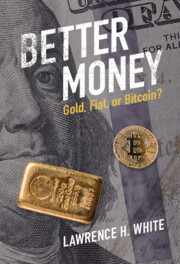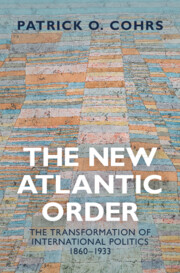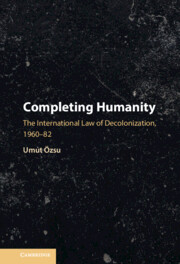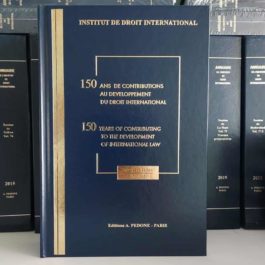2024 ESIL Annual Conference Technological Change and International Law
Call for Papers:
Historical Perspectives on Technological Change and International Law
The ESIL Interest Group on the History of International Law cordially invites submissions of papers for its upcoming workshop centered on the theme “Historical Perspectives on Technological Change and International Law”. This gathering seeks to unravel the mysteries of technological evolution and its enduring legacy upon the edifice of international law.
We are intrigued by the historical development of various technologies across different spatial and temporal contexts within international law. All papers that delve into the debates concerning technological change in international law or explore the influence of technological change on international law are warmly welcomed.
Centuries have witnessed the inexorable march of technological innovation, each stride leaving an indelible mark on the canvas of international law. Technological change – whatever that may be, but as reasonably defined by an author - has impacted international law, just as international law has responded and evolved in the wake of new technological advancements. New disciplines and fields emerged, and old doctrines and theories disappeared. Novel technologies even prompt the emergence of entirely “new” fields of international law, such as international labor law, international environmental law, and air and space law, contributing to the so-called fragmentation of international law.
History is rife with examples and case studies illustrating the intricate interplay between technology and international law. With regard to the law on the use of force, the requirement for a formal declaration of war has been undermined by the advancement of telecommunications. Technological advancements in weaponry (e.g. chemical and nuclear weapons) have reshaped international humanitarian law. Similarly, the law of the seas has adjusted for innovations in ship-building and seafaring technologies (maps, cartography, GPS). Technology also affects the way and extent to which states project their powers. The limit of three nautical miles no longer defines the limit of the territorial sea now that coastal batteries can shoot beyond this range. The industrial revolution also caused international law to evolve. The inventions of the telegraph and railway required new commercial arrangements, enabled the expansion of colonialism, and caused a surge of Western investments abroad. For example, in the mid-19th century, the industrial extraction of sugar from beets in Western Europe distorted the international sugar trade for decades, leading to the conclusion of dozens of treaties. Sometimes, an invention causes entirely new fields of international law to emerge. The airplane and space exploration created the need for aerospace law. But sometimes, too, international law fails to catch up with technological changes. For example, the Hague Convention on Explosives from Balloon in 1907 failed to become a general prohibition against aerial bombardments. Such failures to address technological change are equally important moments in the history of international law.
In reviewing the history of technological changes and international law, authors are encouraged to engage in discussions evaluating how international law has both succeeded and failed to accommodate and regulate technological changes. We welcome papers from all methodological perspectives, as long as they address technology and the history of international law.
Papers could address any of the following topics, but also any topic that addresses technological change (reasonably defined by the author) and the history of international law:
• Governance, preservation, and dissemination of knowledge in international legal history
• The role of international regulation in the rise of new technologies
• The influence of new technologies on human rights, both advancing and undermining
• The impact of technological changes on broader socio-political and sovereign processes
• How technological changes have affected the development and codification of international law
• The influence of technological changes on the law of treaties and state responsibility
• The effects of technological changes on international adjudication
• The constitutionalization of international law in response to technological changes
• The emergence of technology-specific international law
• The impact of technological changes on the laws of war, peace, the use of force, and arms control
• How technologies have shaped concepts of sovereignty
• The appearance or disappearance of disciplines, principles, and concepts within international law due to technological changes
• Case studies of failures to foresee and regulate technological changes in international law.
• The impact of inventions like the steam engine, railways, and telegraph on international law
We are particularly interested in papers that engage with non-Western perspectives on the historical perspectives on technological change and international law. We welcome submissions from scholars and practitioners at all stages of their careers, and particularly encourage submissions from early-career scholars and scholars from underrepresented regions and perspectives.
The Interest Group is unable to provide funding for travel and accommodation. Selected speakers will be expected to bear the costs of their own travel and accommodation. Some ESIL travel grants and ESIL carers' grants will be available to offer partial financial support to speakers who have exhausted other potential sources of funding.
Please see the ESIL website for all relevant information about the 19th Annual Conference. The Interest Group workshop is open to ESIL members, and all participants are required to register for the Annual Conference. There will be an option to register just for one day to attend the workshop; however, all participants are warmly invited to attend the entire event.
Selected speakers should indicate their interest in being considered for the ESIL Early-Career Scholar Prize, if they meet the eligibility conditions as stated on the ESIL website. The ESIL Secretariat must be informed of all selected speakers who wish to be considered for the Prize before 30 April.
Submissions should include an abstract of no more than 500 words, a short bio of the author(s), and contact information, in Word (not PDF). Abstracts should be submitted by the 22nd of March, 5 pm (CET) to anastasia.hammerschmied@univie.ac.at. The abstract and bio should be separated to allow for anonymous review by the convenors. The workshop will take place on the 4th of September (time slot TBA), and will provide an opportunity for participants to engage in a critical discussion of their research and to receive feedback from other scholars and practitioners. Remote participation will be possible, but in-person presence is highly preferred.
Convenors
Anastasia Hammerschmied – Florenz Volkaert - Jaanika Erne – Sze Hong Lam (Ocean)





